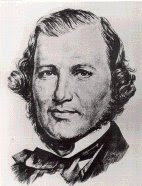"[O]ur individual salvation depends on our collective salvation. [Don't] take your diploma, walk off this stage, and chase only after the big house and the nice suits and all the other things that our money culture says you should buy."
-- Barack Obama, 2008
"I led . . . out of patriotism, not for profit."
-- John McCain, 2008
We've come an awfully long way since the 1980s, haven't we? Do you think back fondly of the days when the influence of Thatcherism was producing massive privatization in Britain while Reagan valiantly battled the steady encroachment of socialism in the United States? Even a casual Capitalist can't help but read about Britain's 2008 decision to nationalize the private bank Northern Rock and blink in bewilderment. What happened?
Well, for starters, even in the 1980s Capitalism was no more than an uncomfortable ally for conservatives. Although Reagan and Thatcher were for the most part genuinely committed to economic freedom, the vast majority of their supporters were very definitely not. In both Britain and America, the political right defended Capitalism with one hand as the only legitimate economic system for a free and democratic society while, with the other hand, condemning the profit motive as selfish. These conservatives demanded, as they continue to demand today, that we sacrifice our rational self-interest for the higher good of altruism. With friends like these, Capitalism didn't need any enemies.
And it doesn't seem to have any philosophical enemies left anyway. Have you noticed that the Democrats have abandoned all efforts towards a substantive criticism of free enterprise? Why would they bother engaging in a debate about ethics and economics when there are so few real Capitalists left to oppose them? Instead, pseudo-socialistic organizations like the Obama campaign interest themselves with the "social consequences" of Capitalism as they investigate the "fundamental human aspect" of their economic system, thus deftly side-stepping any awkward questions regarding the economic reality of their country. Even Hillary Clinton would have the good sense to blush at this obvious evasion of a real discussion of the issue.
The upcoming American election is as true an example of a Sophie's Choice as I've ever witnessed. Barack Obama turns up his nose at big business to the cheers of Democrats everywhere while repudiating Americans for playing into the "money culture" that has made them the wealthiest country in the world. John McCain sneers at Mitt Romney and big business for daring to pursue the profit motive while claiming that his own motives are pure since they aren't tarnished by self-interest.
And so the question of who will win in November becomes economically irrelevant. True, if Obama wins he will roll back the Bush tax cuts, install a universal health care scheme, and impose unsustainable environmental restrictions on big business the likes of which the US economy has never seen before. A victory for McCain, however, would amount to the same thing in the long run. The Republican nominee has been committed to the anthropogenic global warming movement for years now and his voting record should be enough to convince any businessperson of his lukewarm commitment to a free economy.
As a John McCain presidency would swiftly demonstrate, there is no surer way to undermine an idea than to argue for it poorly. As the leader of the so-called "Party of Capitalism," McCain would destroy Capitalism in America just as thoroughly as would his Democratic opponent.
It all adds up to a demoralizingly clear conclusion: McCain? Obama? Who cares? Either way, Capitalism loses.












